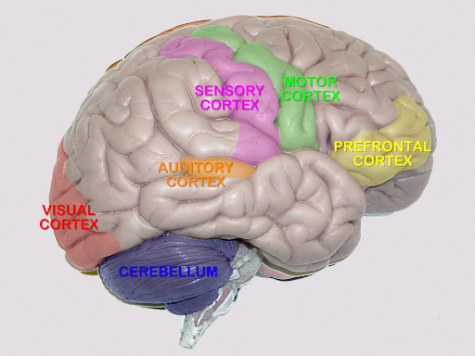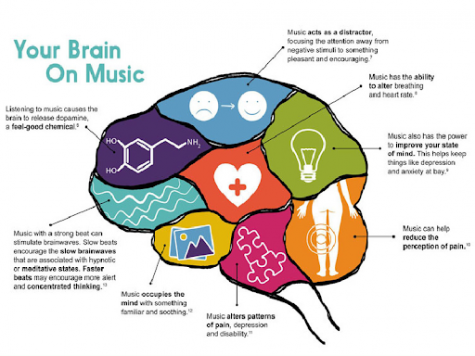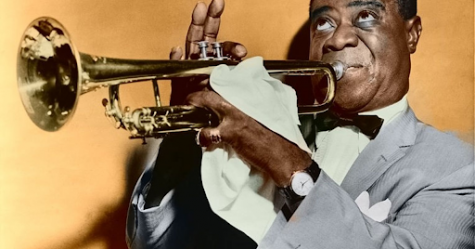The Psychology Behind Music
January 12, 2022
Music is an extremely powerful thing that most people overlook every day. It had the ability to elicit emotions from the listener, help you manage your emotions, escape from everyday life, and even more. Music psychology is everywhere and can be used to benefit anyone. Music psychology is a branch of psychology that studies human attitude, skill, performance, intellect, creativity, and social behavior, as well as examinations of human attitude, skill, performance, intelligence, creativity, and social conduct. So, how does music allow you to create emotions and produce pleasure within listeners?
Memories

When it comes to music, memories within music are a powerful way to cause an emotional experience. A song that you listened to with your grandmother before she passed away, creates sadness or happiness thinking back about the good times you had with her. Musical memories actually last longer than any other memories that disappear. While listening to music, you’re using multiple parts of your brain: the nucleus accumbens, amygdala, cerebellum, and even more. Therefore, your brain can process and keep these memories longer than others.
Mood regulation

Music often allows people to regulate their emotions. When people are craving escape from reality, they turn to music. Listeners put in their headphones or turn on their speakers in order to become energized, maintain focus or something as simple as lessening boredom. Listening to beautiful melodies and an angelic voice allowed people going through rough times to listen and disengage from their current issues to pay attention to the music. Lyrics are able to make on express their emotions in ways which they cannot express by themselves. Music as a whole can be used as a distraction in order to forget about the bad things in life and listen to the good things.
Emotional Responses
The pleasure of music involves the same enjoyment center in the brain as other forms of pleasure; including food or drugs. In one study, people listened to their favorite songs and types of music while taking Naltrexone, where this drug is prescribed in order to treat addiction disorder. Researchers found that when taking this medicine, their favorite songs were no longer pleasurable as usual. This evidence leads to the conclusion that an aesthetic stimulus, such as music, can naturally affect the dopamine levels of the brain.
In one study, participants listened to their favorite songs after taking naltrexone. Naltrexone is a widely prescribed drug for treating addiction disorders. The researchers found that when study subjects took naltrexone, they reported that their favorite songs were no longer pleasurable
Ads and Consumers

How often have you watched an ad in which there was background music? How does this change the way you perceive the product that you are trying to buy? Music can be played in the background to induce you to buy a certain product. For instance, a study shows customers in a supermarket either French music or German music. The results revealed that French wine outsold German wine when French music was played. On the other hand, German wine outsold French wine when German music was played. As can be seen, Music can bring flavor to an advertisement, without the music the ad would seem plain and not interesting. Music can create emotion and motivate people in order to endorse their product and overall brand.
Movement
While listening to music, most people have the urge to move or dance; such as toe-tapping, clapping, or overall just dancing. The music we listen to can evoke our desire to move, as well as change our heart rates in order to become connected to the music, slowing down or speeding up as a result of the type of song.
Sources:
https://www.kennedy-center.org/education/resources-for-educators/classroom-resources/media-and-interactives/media/music/your-brain-on-music/your-brain-on-music/your-brain-on-music-the-sound-system-between-your-ears/
https://www.vibe105to.com/tuned-in/can-music-really-affect-our-mood
https://www.psychologytoday.com/us/blog/science-choice/201908/music-emotion-and-well-being












































